To help our members with their choices on who they should support as members of the new PE Board, we asked a few questions of all of them. We hope that this information is helpful and adds a bit more to the statements they had already provided.
Thanks to all candidates for their contributions!
We already did a similar exercise for the two candidates for the position of PE, Clive de Silva and David Mason. Both Clive and David are also standing separately for the Board, although whoever is appointed as President will not need to be appointed as a Board Member – they will be on the Board in their own right as President.
We have had a good number of AGM proxy forms in already, but we would like to encourage all our members to take the time to participate. PE is a membership organisation and everyone has an equal say. It’s easiest and best to submit the proxy form via the LoveAdmin membership system. Just log in with your normal details and go to Events where you will see the AGM as a separate event. You will be able to cast your preferences online and our Company Secretary will receive them for safe keeping for our AGM.
As planned, we did not hold our AGM on 18th April due to the current Government restrictions on social distancing. Our Company Secretary Ken Buchan is currently seeking advice on how we can take things forward and we’ll update all our members shortly. In the meantime there is no closing date for the receipt of proxy forms – that will be eventually set as 48 hours prior to the time and date of the adjourned AGM.
In the meantime….stay safe everybody!
________________________________________________________________________________________________________________
Candidates for PE Board – responses in alphabetical order:
Matt Blyton
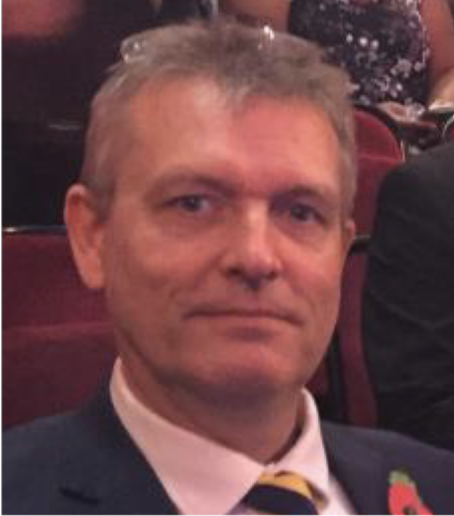
Q: Could you please give us a few details about your personal and work backgrounds (if applicable)?
A: My career has always been in education. Initially, a primary school teacher in Cambridgeshire and Singapore, I then did ten years of deputy headship and headship in North Yorkshire. Six of these were ‘behind the wire’ at RAF Leeming, then an active Tornado base during the second Gulf War – an experience which led to me developing a great affinity for military communities. I therefore became an educational consultant for the MoD, based in Cyprus but part of a central team located in Germany, supporting MoD schools as far away as Brunei and the Falklands.
For the past 12 years, I have been an education adviser for North Yorkshire County Council. But I also sit on some national advocacy bodies for Service Children and am a Trustee of a military kids’ charity. My career to date has involved much strategic planning and quality assurance, skills which I think would be useful to PE’s Board.
Personal interests include travel, golf and, in recent years, amateur dramatics. I am also a long-suffering Ipswich Town Football Club supporter, since my family has close links with Suffolk.
Q: How long have you been involved in the sport of pétanque, what attracted you to it and what have you achieved playing the sport?
A: I came across the sport by chance in 1979, at the age of fourteen, at a sports complex in my home town of Swanley in Kent. I had gone with a friend to the golf driving range but was offered a game at the pétanque club when I quizzed the club’s chairwoman about the Boules she was returning to the pro shop as I went to return clubs for my deposit. From that moment I was hooked, taking out a licence every year since 1980. Having played chess for Kent at school-level, as well as being a keen basketball player, I loved the sport’s combination of strategy and precise ball skills.
I was probably unaware at the time just how geographically lucky I was, for in the first 4 years of playing midweek league and club tournaments, I was asked to play with a number of great players and mentors from two of the best clubs of the time – Norfolk Square in London (with players such as Michel Hourcastagnou, Richard Elvin, Sylvain Borsi and Doug Curtis), and The Wheatsheaf in Kent (with players like Phil Bradshaw, Dave Turner and Charlie Shrimpton). I consider 1985 as my break-through year, winning the then British Triples Championships with Simon Bird and Barry Scott (as a Norfolk Square team) and playing for GB in the North Sea Tournament in Gothenburg, Sweden. Between 1985 and 2004 I had the huge honour of playing in this great tournament ten times. How I would love to see its return.
However, my most memorable playing achievements were playing in the World Championships in 1988, 1991, 1992 and 1995, with three of these being with my best mate, Andy Allen, a school friend I’d introduced to the sport. Andy now lives in Australia, but we still enjoy reminiscing!
Other playing achievements include playing in 8 Home Nations, twice with my elder son Jamie, winning two National Triples titles and playing in matches with Didier Choupay and Christian Fazzino (my favourite player). I also came close to winning the National Singles Championships twice in the 1990s, but untouchable performances in the finals by Ashley Jamieson and Paul Bond prevented that!
Q: What have you contributed personally to the organisation, administration and promotion of the sport? What are you most proud of?
A: I have always been a keen promoter of the sport, building terrains and setting up clubs almost wherever I have lived – 6 to date. I am currently the President of my local club.
When I moved to Singapore in 1992, when I was playing at a decent level, I was honoured to be asked by the Singapore Sports Council to be their National Pétanque coach. In total, I went on to coach the National teams at six World Championships. Being minnows on the world stage, getting to the semi-finals of one of the Nations Cup was a particularly proud moment and completely new territory for the country.
When I returned to England, I became the Northern Regional coach and have encouraged the development of the sport in the north. This culminated in working with a small group to introduce La British Open to the playing calendar two years ago.
I am particularly proud of accepting the challenge from the then EPA President, Mike Pegg, to establish a national junior squad in 2013, off the back of successfully coaching the junior team at the Ghent Euros the year before. With favourable geography and playing parent enthusiasts being the two biggest factors in youth players representing their country at that time, I wanted to create a more equitable system involving (the controversy of) selection, alongside a mentoring and structured coaching programme. I was lucky to be supported by some excellent like-minded coaches and supporters in the 6 years I was involved in this, particularly Brian Stote, Colin Roper, Claire White and Toni Gates. To a certain extent, the project remains a work in progress, but it is great to see the now National Youth Academy thriving under Toni’s stewardship. My number 1 proudest moment in the sport in 40 years, without a doubt, was coaching the Juniors in Thailand in 2015 when we managed to thrash Italy to reach the final of the Nations Cup, having been outclassed by the same talented team in the Swiss rounds.
Q: What are your reasons for standing for the Board of PE?
A: One of my motivations for standing is that I wish to give something back to the Association having benefitted hugely from it over many years. I also consider having Board members who have been involved in the sport for such a long time, and who have played internationally, brings a helpful perspective to decision-making. In addition, I consider my career has allowed me to develop leadership and management qualities, such as project management, which can be put to good use in the administration of the Sport nationally.
Q: If there was one thing that you’d like to see changed in the operation or administration of our sport, what would that be?
A: I would like to see policies and practices that encourage greater unity and teamwork at all levels. In recent years, social media appears to me to have highlighted controversies and reinforced differences, yet many positive developments have been made recently such as the growth of events such as the London International, Worthing festival and La British Open, as well as the sport’s link-up with clothing firm Tog 24. If we are to see both participation growth at the grass roots and improved performances on the International stage, I believe the Board must prioritise longer-term projects, such as developing indoor facilities and strengthening coaching and umpiring. Alongside this, a clear communication strategy is key to ensuring the membership sees and hears about the hard work that goes on behind the scene by Board members. Everyone needs to be pulling in the same direction.
Q: Is there anything you’d like to add about why members should vote for you?
A: As someone who works in local government, my job requires me upholding the 7 Nolan Principles of public office – namely selflessness, integrity, objectivity, accountability, openness, honesty and leadership. Were I to be elected onto the PE Board, I would do my best to uphold these principles in supporting its work.
Clive de Silva
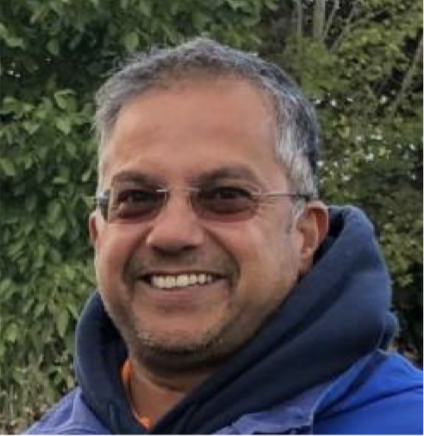
For more information on Clive, please visit the information he provided in support of his candidacy for President.
Toni Gates
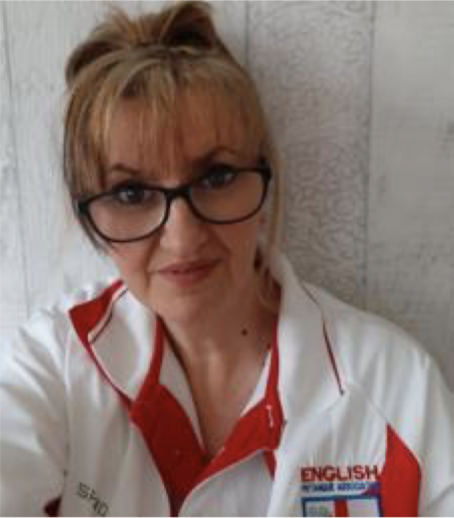
Q: Could you please give us a few details about your personal and work backgrounds (if applicable)?
A: My work background has little bearing on my application for a position on the Board but working as a hairdresser has taught me good communication skills and this, I believe, is an essential element of being on the Board. I feel most of my relevant personal background is set out below.
Q: How long have you been involved in the sport of pétanque, what attracted you to it and what have you achieved playing the sport?
A: I have been involved in pétanque for over 15yrs now, getting into it originally through an ex-boyfriend. I spent many hours travelling watching him compete nationally and internationally and through this grew my love of playing the sport. I went on to represent my region at the Champion of Champions and three times qualified to play for England in the Home Nations. One of my highlights of playing was travelling to Holland to play in the Kadeboule doubles, an event that attracted over 100 teams. Matthew Eversden and I won this event and the following year just fell short, coming runners up.
Q: What have you contributed personally to the organisation, administration and promotion of the sport? What are you most proud of?
A: Latterly, a string of health issues restricted the amount I played but this also enabled me to focus more on developing the youth side of our game. I was involved, for a number of years, with the Chiltern Region juniors, helping them to gain a string of successes at Brean Sands Inter-Regionals. These achievements included winning Top Team which was no mean feat at that time as it required beating all the other junior and senior teams on wins and points.
Over the years I have organised and run many various fundraising events (raising a total of over £20,000 for various cancer charities) as well as events that helped to fund espoirs competing internationally. Over the past few years my work with the National Juniors has grown and I have truly loved this. After I joined the NYS set-up, I suggested that we introduced the NYS ‘B’ squad to better nurture our up-coming talent. For the first two years I fundraised to support all of the B Squad work, including international trips. As my role with the National Juniors has grown, so has the variety of work that I do. We have a fantastic coaching team within the NYA and I strive to support and encourage their work. I have tried to develop an environment where our coaches are well respected and we have established an excellent relationship between the coaching team and not only the youth players but their parents and families as well. I strive to give as much as I can to the sport as a whole but especially our young players. I offer my time and advice as freely as I can and try to maintain an approachable manner.
What am I most proud of? As well as the playing achievements, awesome fundraising efforts and personal successes of our young players, the thing that I am most proud of is that, years after moving on from junior play, many of these players still contact me now (often from abroad whilst competing at senior level) to let me know how they are doing or what they have achieved. To have been a part of their development and to still be valued later in life makes me immensely proud.
Q: What are your reasons for standing for the Board of PE?
A: If I am perfectly honest here, I believe that our Board/Committee, for a number of years now, has been made up of a lot of good people with good intentions but a lack of combined direction. Whilst not from a corporate background, I believe I have the honesty, integrity and tenacity to work through difficult times and the compassion and understanding as well as the desire to help to bring the Board together to work as a more streamlined and united body.
Q: If there was one thing that you’d like to see changed in the operation or administration of our sport, what would that be?
A: Communication – A better communication procedure must be adopted for the association to work effectively. This communication must flow from the President / Board directly to the membership giving clear and accountable information. There must also be clear communication channels through to the lead coaches and from them down to their respective groups (youth, espoirs, seniors and veterans). The lead coaches must have clear and concise instructions including budgeting and have them well in advance of the start of the season so that plans can be formulated and players know what is expected of them if they make the national squad. There must also be better communication through the regions down to club and leisure players. Q6: Is there anything you’d like to add about why members should vote for you? Members should only vote for me if they feel I can add something constructive to the Board. If you do not know me, simply ask someone who does what they think of me and make your judgement from there. I believe that the Covid-19 situation has given PE and the entire membership the opportunity to Stop…. Think…and Regroup, moving forward with a renewed passion and unity. Therefore, I urge people to vote for the group of people they feel will collectively deliver that.
Q: Is there anything you’d like to add about why members should vote for you?
A: Members should only vote for me if they feel I can add something constructive to the Board. If you do not know me, simply ask someone who does what they think of me and make your judgement from there. I believe that the Covid-19 situation has given PE and the entire membership the opportunity to Stop…. Think…and Regroup, moving forward with a renewed passion and unity. Therefore, I urge people to vote for the group of people they feel will collectively deliver that.
Peter Hardy
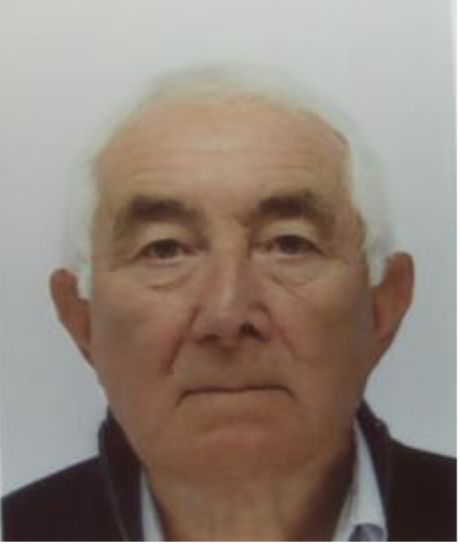
Q: Could you please give us a few details about your personal and work backgrounds (if applicable)?
A: I was born and grew up in County Durham and studied maths at Leeds University. I decided to become an actuary and got a job with Norwich Union and moved to Norwich in 1970. I married my wife Anne the following year. We have three children all now aged around forty! All the children played pétanque, and Steven represented England as a junior at the world championships in Sweden many years ago. I worked for NU for almost all my career, finishing as Pensions Director. I finally spent three years with Ernst & Young (EY) in London before finally retiring ten years ago.
Q: How long have you been involved in the sport of pétanque, what attracted you to it and what have you achieved playing the sport?
A: I have been playing pétanque for thirty five years. I was a founder member of my club which is based at The Bob Carter Centre near Norwich. At the time, my wife and I had three young children and we were looking for an activity that we could all do together. Pétanque is the perfect family sport and all ages and genders can play and compete together. It is also inexpensive and in those days, it ticked all the boxes for us as a young family.
Q: What have you contributed personally to the organisation, administration and promotion of the sport? What are you most proud of?
A: From the very outset I was involved in the administration of the sport. Firstly at club level, then Norfolk County where I was Chairman for eleven years and then at Anglia Region where I was either Regional Umpire or Regional Treasurer. I have been a qualified umpire for twenty eight years. I represented Anglia Region for many years. I think the first time I played in the Inter-Regional championships they were held in Poole in Dorset about twenty five years ago and my triple was myself and my two sons Paul and Steven. And the rest as they say is history! I have been involved in the administration of the sport in Anglia Region at every level for the past thirty five years. My particular interests are umpiring and finance, so I have been Treasurer of most leagues and organisations and Chairman of a few. I am particularly proud of my club – The Bob Carter Pétanque Club. It was formed in 1984 with twelve members and has grown to thirty five members during a period when participation in the sport has declined. The club reached the quarter finals of the Euro Cup for the first time this year.
Q: What are your reasons for standing for the Board of PE?
A: I am standing for the Board of PE because I believe in giving something back to a sport that has meant so much to me for many years. I have the time now that I am retired and I have the experience and ability to contribute at board level.
Q: If there was one thing that you’d like to see changed in the operation or administration of our sport, what would that be?
A: The development of umpiring has fallen behind and needs to be improved. We have far too few umpires at every level. Wouldn’t it be good if every PE member club had a grade three umpire? And every Region had a grade two Regional Umpire. And if we had at least five grade one National Umpires. But we also need more members of PE. Only around 15% of all casual pétanque players in England are members of PE and we need to find new ways of engaging with them. Finally, we need to get pétanque recognised as a qualifying GCSE sport on the school PE curriculum – it is the only way to recruit young people in numbers.
Q: Is there anything you’d like to add about why members should vote for you?
A: There are nine excellent candidates in this election. I have the time and ability to make a contribution at Board level and I can bring new ideas to the table. No-one from Anglia has been involved in the administration of the sport at National level. Members may feel that casting the net a little wider will improve the Board’s regional diversity.
Janice Keemer-Richards
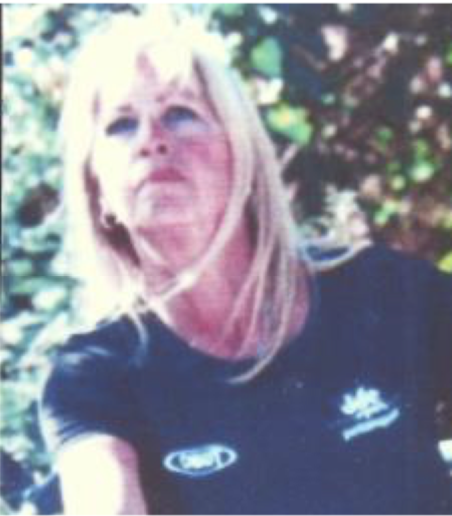
Q: Could you please give us a few details about your personal and work backgrounds (if applicable)?
A: I am now retired but was for 12 years a Teaching Assistant (TA) in a primary school. I am now, and have been for the past 10 years, a volunteer TA, working at St. Nicholas CoE School in Strood, Kent near where I live.
Q: How long have you been involved in the sport of pétanque, what attracted you to it and what have you achieved playing the sport?
I originally started playing pétanque when my sister was short of a player for their team, The Luddesdowne Cocks, more than 14 years ago. What seemed to me, then, a silly game of throwing metal ‘balls’ at a tiny wooden ‘ball’, has now become a big part of my life! Enjoying the teaching side of things, I decided to train as a Club Coach, and have enjoyed coaching the Kent Juniors on a regular basis. As a result, I have watched them blossom into players to be reckoned with. They have progressed beyond belief and are now a part of the NYA, being coached under the watchful eye of Toni Gates and her team, who do a fantastic job! I consider myself a fair player, having one England cap under my belt. I was very proud to represent England in Maaseik, Belgium in 2018. A very humbling and enjoyable experience, and something I had never done before. As I have said, Pétanque is a big part of my life and enjoy playing at least three times a week, plus any competitions at weekends. In the summer evenings we have a team practise at The Railway Inn, Tuesday Club and then league on a Wednesday.
Q: What have you contributed personally to the organisation, administration and promotion of the sport? What are you most proud of?
Enjoying the teaching side of things, I decided to train as a Club Coach, and have enjoyed coaching the Kent Juniors on a regular basis. As a result, I have watched them blossom into players to be reckoned with. They have progressed beyond belief and are now a part of the NYA, being coached under the watchful eye of Toni Gates and her team, who do a fantastic job! I have played and was going to play this season in the East Kent Coastal League, and I am also a regular player in the Kent League, Team Captain of the Railway Roosters. I have served on both Committees. Secretary of the EKCL and Youth Development Officer on the Kent Committee.
Q: If there was one thing that you’d like to see changed in the operation or administration of our sport, what would that be?
I would like to see the PE Board working, liaising and making decisions together to advantage ALL PE members. Maybe a two or three tier membership system could be investigated, where the grassroots of our sport pay less than the elite, and the ‘social’ members pay even less.
Q: Is there anything you’d like to add about why members should vote for you?
A: I think I could make useful contribution to the Board to help build a bridge between members and the Board.
David Mason
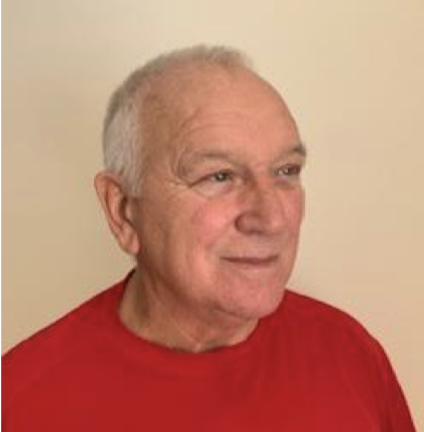
For more information on David, please visit the information he provided in support of his candidacy for President.
Alan Roden
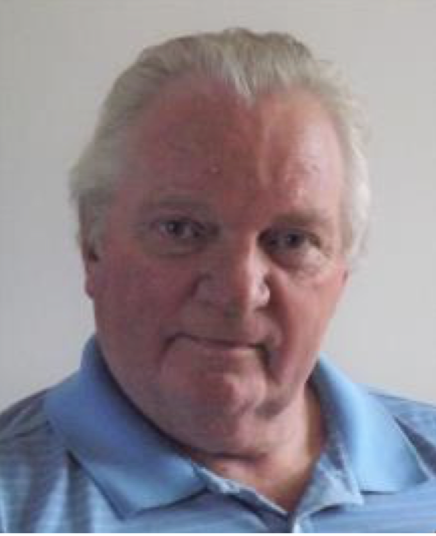
Q: Could you please give us a few details about your personal and work backgrounds (if applicable)?
A: I am 69-year-old Lutonian and spent all my working life in engineering companies, from shop floor to senior management roles, mostly in the automotive and aerospace industries. I was an elected local councillor for 10 years. After retirement, I spent three years as a voluntary advisor at the Luton Citizen’s Advice Bureau (CAB). I am married to Sheila and have two grown up children and two grandchildren.
Q: How long have you been involved in the sport of pétanque, what attracted you to it and what have you achieved playing the sport?
A: I joined the Luton Pétanque Club in 1998 and soon became a regular in their ’A’ team and team captain soon afterwards. I became club secretary a few years later. My game was never strong enough for National level but I played regularly in club and regional competitions and have received a number of regional trophies. I have been a Chiltern region committee member for nearly 20 years and have been their regional team manager for 17 years. I have also been on the EPA and PE committee and board for 6 years and have been the Euro Cup organiser for the past 4 years. In 2017, I received the prestigious ‘Chiltern Chairman’s Trophy’ which is awarded annually to a person, team or club for outstanding contribution to the region.
Q: What have you contributed personally to the organisation, administration and promotion of the sport? What are you most proud of?
A: At Luton Pétanque Club we have worked hard to promote the game in the local area and have always put social play at the forefront of the club. We lost our playing area in 2013 and had to find a new home. For complicated reasons, the club found itself with only 12 members and a debt to Luton Borough Council of over £11,000! After a lot of work from myself and other committee members we have now wiped out that debt and have a membership of over 60, many of which are new to the sport. This was done by a number of innovative and imaginative enterprises and we now have a club that is the envy of many in the region.
Q: What are your reasons for standing for the Board of PE?
A: Due to joint problems, I am unable to play as much these days, although I still play in league matches and the occasional club and regional tournaments and I want to put back something in the sport that has become a way of life. I have always been a strong organiser and I want to continue to use my work and personal experiences to, hopefully, benefit the sport that I love.
Q: If there was one thing that you’d like to see changed in the operation or administration of our sport, what would that be?
A: I think that there are not enough umpires and, because of this, they are often only used for measurements and do not have the opportunity to enforce the rules which are often broken by players, sometimes experienced ones. I believe that we need a stronger umpires commission which recognises that many people are put off by the hoops that they need to go through. I know a number of people who would make excellent umpires but have been discouraged due to rigid interpretation of the qualification procedure.
Q: Is there anything you’d like to add about why members should vote for you?
A: I would like to think that I am an honest person, what you see is what you get. Although I will be vigorous in stating my belief and case in any issue, I believe in compromise and not confrontation and will approach all decisions that have to be made in this manner.
Christine Spray
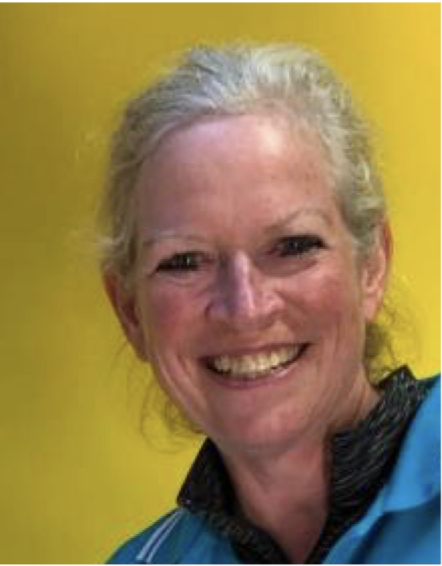
Q: Could you please give us a few details about your personal and work backgrounds (if applicable)?
A: I have been a Full Time specialist Consultant in Paediatric Gastroenterology, Hepatology & Nutrition at Bristol Royal Hospital for Children since January 2000. I look after children of all ages from babies to 18 year olds from the whole of the South West region referred to my department, who need specialist investigation and advice in managing children with gut, liver and specialist nutritional conditions. I have been head of the department for the last 12 years. I lead a team of 5 Consultants, 4 specialist nurses, 2 psychologists and 3 dieticians. My job is frequently challenging & demanding but also rewarding. I qualified at Liverpool University and my medical career has taken me to many places around the country, London, Liverpool, Newcastle upon Tyne, Birmingham and finally Bristol. I have been an active participant on various European and British working groups for children with Inflammatory Bowel Disease; Liver disease, Intestinal Failure, Eosinophilic Oesophagitis with the aim of improving standards of care globally. Presently, I am Chair of Gastroenterology for our national society, British Society of Paediatric Gastroenterology, Hepatology & Nutrition (BSPGHAN).
Alongside, a very full working life, I have always been actively involved with sport. As a child, I swam for my county. At University, I started the University Lacrosse Team from scratch, played squash for the University team and Netball for the medical team. I continued in some of these sports at club level, when I was working, particularly squash and tennis. I won an ITF seniors mixed doubles title in Marbella with Clive de Silva.
In 2011, I undertook a 3 month wilderness walk along the Pacific Crest Trail in USA. Some of you may be familiar with the film, Wild, starring Reece Witherspoon which followed the same trail. I raised money for children with Inflammatory Bowel disease.
Q: How long have you been involved in the sport of pétanque, what attracted you to it and what have you achieved playing the sport?
A: My first exposure to Pétanque was when Clive de Silva asked me to play for his Eurocup team in 2010 because the team needed a “lady”. This was the first time, I had ever thrown a boule! I then played in the region’s winter doubles and gradually played more and more pétanque. Developing new skills, understanding the strategy of the sport and the opportunities presented in playing the sport was exciting. Our team’s skill and competency improved and we reached the semi- finals of the Eurocup, five times. I played in our regional competitions, winning the ladies doubles and mixed titles. In order to gain more experience, I played in the women’s national ranking tournaments. I have to say a big thank you to those more experienced players, (men and women), who helped me go further in the sport, than I had ever imagined. In 2017, I was part of the winning team in the ladies ranking triples in Arlesey. In the same year, I was selected to compete for England in Maaseik, Belgium and came third in the main draw of the women’s singles. In 2018, my partner and I won the National Ladies doubles (Silver) in Gravesend. I have also been fortunate to play in the Home Nations in 2018, in Jersey.
Q: What have you contributed personally to the organisation, administration and promotion of the sport? What are you most proud of?
My biggest contribution to the sport has been helping to increase the standard of play and competitiveness within the Great Western region (GWR) by supporting the development of the playing programme, initiated by Clive de Silva. In addition, other members of GWR, especially female members saw the opportunities I had been given at national level and I believe this gave them confidence to participate nationally, themselves.
Q: What are your reasons for standing for the board of PE?
I would like to have the opportunity to help shape the future direction of pétanque in England. I would like to promote the profile of pétanque, making the public aware of the sport and the opportunities it can provide to members of all ages. Attracting younger members to our sport is important in sustaining our ability to develop teams to represent England at international level. I would like to see the players chosen to represent England, feel supported by all members of PE and are given opportunities to strengthen their game with appropriate training and experience. Of course, these activities require adequate funding and I am keen to ensure this happens.
I would like to be a “voice” for the women of all ages on the PE board.
Q: If there was one thing that you’d like to see changed in the operation or administration of our sport, what would that be?
A: I believe we need to seek sponsorship to help finance PE and in turn this will promote the sport of Pétanque.
Q: Is there anything you’d like to add about why members should vote for you?
I have experience in leadership, work hard, passionate about pétanque and keen to use my skills at board level.
Barry Wing
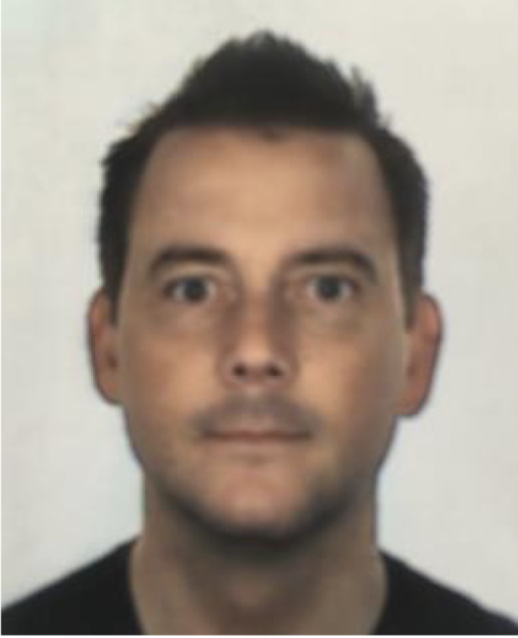
Q: Could you please give us a few details about your personal and work backgrounds (if applicable)?
I started my career working in an estate agents which was opposite the three blackbirds pub in Sidcup. I used to walk across the road (ten seconds) and go practice lunchtimes and after work come rain or snow. I then worked for BT in the city for 15 years as an I.T. Programmer. I took redundancy around 2002 and decided over the next few years to travel, moved to Puerta Banus for 6 months and then I travelled 6 months around Europe visiting countries like Norway, Denmark, Germany, Holland and France. I then spent a year living in Fuertuventura and then DJ’ing in the Canary Islands. I also worked on a holiday camp coaching football and pétanque. I returned home when I was told of Michel Hourcastagnou’s funeral and when my father also became very ill with cancer. I never returned to the Canaries as I chose to become a Carer for my mum. I changed my career and went into sales and marketing and worked local. I currently work for a local finance company three days a week and I went semi-retired in 2017.
Q: How long have you been involved in the sport of pétanque, what attracted you to it and what have you achieved playing the sport?
A: I started at the age of 12 when my next door neighbours Ivan Russell and his step dad Eric Lapthorne took me to a competition. We made the semi finals and we lost to Norfolk Square whom I later joined. I really was attracted to the social side of the characters in boule, playing cards, lie dice and getting to travel all around the country.
I went on to win the national doubles (aged 17) national triples (aged 18) and on many occasions my team won the qualifiers for North Sea Tournaments to be the Great Britain 1 team. I think my biggest achievement s have been that myself and Matthew Horrigan have qualified for the World Championships with all different types of partners i.e. Simon Bird, Bruno Bove, Michel Hourcastagnou and Dave Chawkley.I feel that if there has ever been a big cash competition over the last 35 years my team has always tried to get the furthest of the British contingent making three Rochester finals (losing 13-12 to Phillipe Quintais’s team one year and 11-13 to Claudy Weibel’s team another year) winning Battersea Park, finalist at Le Piat Dior losing to World Champs Belgium 12-13 and losing finalist at the Pernod open. These competitions you could be playing for £4500 at a time so I would say my best achievements are that I know I’m good in pressure cooker situations to have been involved in so many great finals over such a sustained period of time.
Q: What have you contributed personally to the organisation, administration and promotion of the sport? What are you most proud of?
When I was Great Britain One the president used to ask us to go open new venues and cut a ribbon. Since about the age of 27 I have been coaching at venues when asked to. I left the sport in 2002 for 10 years and since my return in 2012, I have become more and more involved in running events, coaching, promoting events like Gravesend Alpine International and The London Pétanque Championship which I think most players would agree became the biggest event to happen in the U.K. over the last two decades. I have offered my services every year to PE for any help with juniors and coaching. More recently I have started a coaching academy at Gravesend before the virus. I have played many competitions with some of our younger generation trying to help their development within the game. I recently arranged some invites for some of our English players to go in my place for an invite I personally received to Holland and France. I am in talks with some of the World Champions to hold a boot camp weekend and hope to run these all around the country in the next few years. I think my proudest moment is carrying the Great Britain flag at my first World Championship.
Q: What are your reasons for standing for the Board of PE?
I’d like to continue my work and try to steer the board towards a better future for our sport. I have many ideas I’d like to put forward for our members to benefit from. Although I still hold my own at the top level of the sport after 40 years of playing, I do feel my playing days are coming to an end in the next 3-5 years so I’d like to be more involved in administration and coaching.
Q: If there was one thing that you’d like to see changed in the operation or administration of our sport, what would that be?
A: I’d like to see more transparency and better communication right down to the grass roots level. Not everyone is on social media and that can be forgotten sometimes. I’d also like to see the association create a 3 to 5 year action plan to increase the membership, improve technology to promote the sport so that we can attract sponsors who we will look to one day invest in a bouledrome or two.
Q: Is there anything you’d like to add about why members should vote for you?
A: If elected I promise to give 100% to achieving positive things for all the members (not only to the elite level) and I hope the members support me and trust me as I have the right knowledge and vision to achieve these positive things.
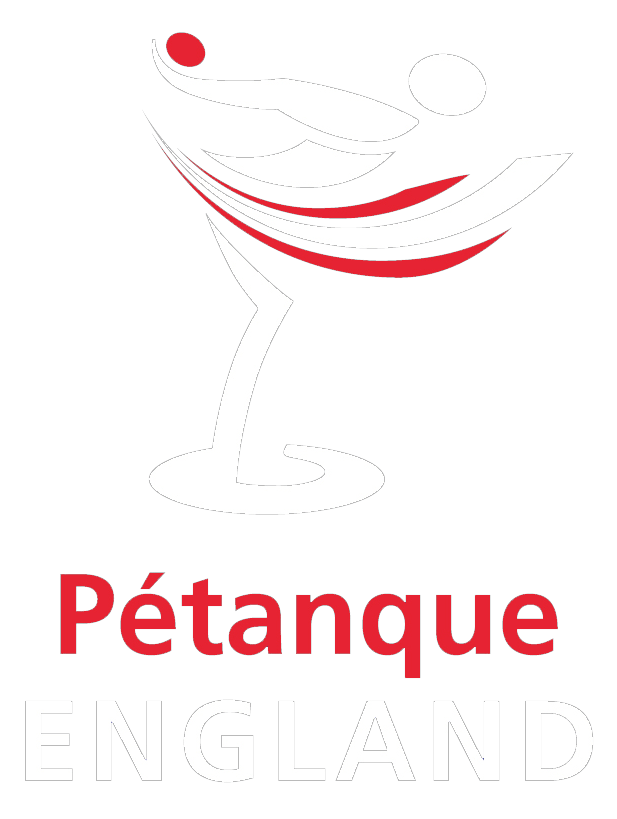
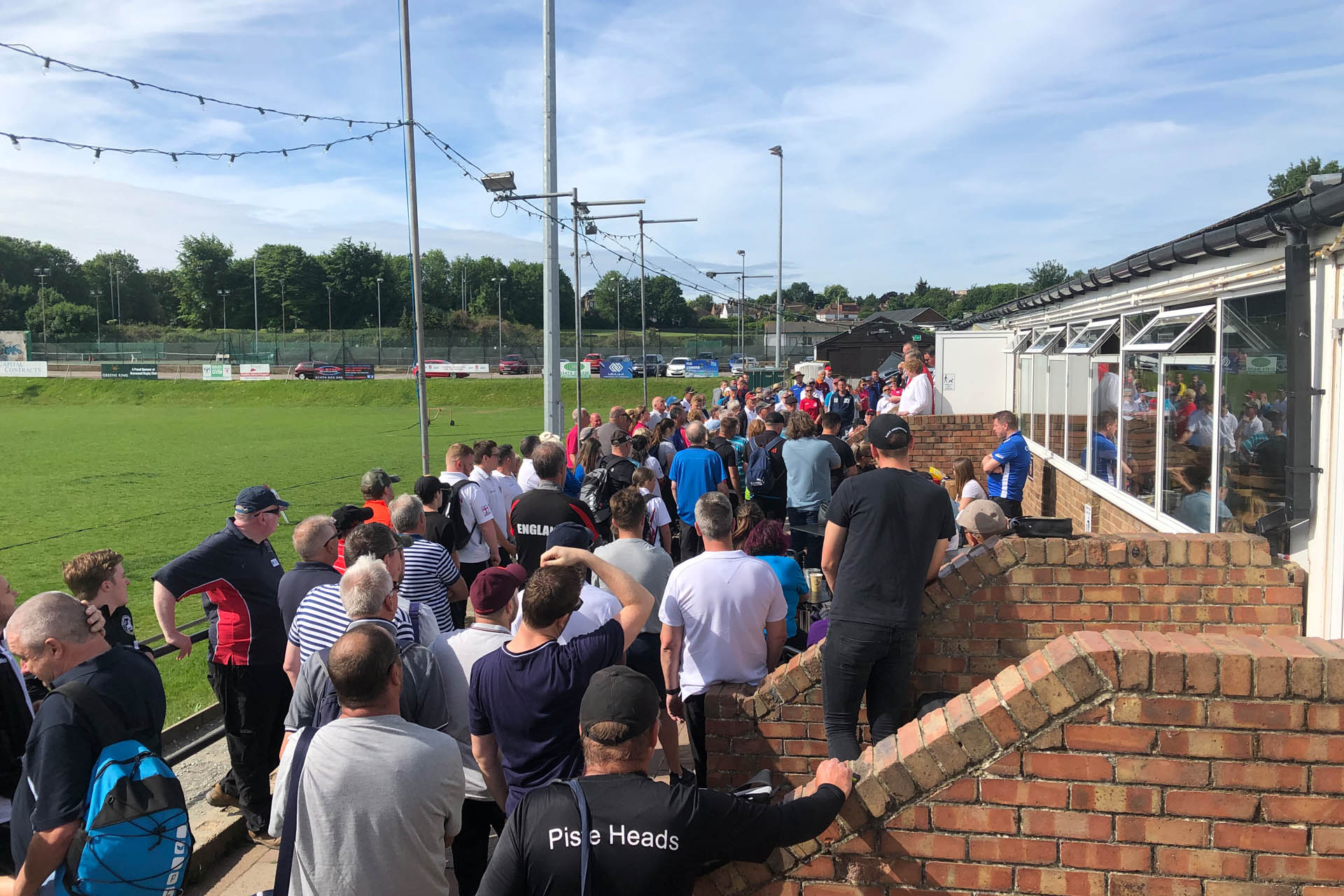
One comment
Gill Mason
26th April 2020 at 10:25 pm
thank you so much for posting all the relevent information of each nominee hoping to fulfill vacant positions on the PE board.
They all set out their aims and achievements clearly and concisely.
Any one of them could be a worthy winner. But I have already voted and I’m pleased with the choices I made.
I do hope the vast majority of PE members do take into consideration the importance of actually voting…
It is, after all, in their best interests to do so.
* May I just point out that I do believe Alan Roden won the 2019 Chiltern Chairman’s Trophy (deservedly so!) because I was the recipient of the 2017 Chiltern Chairman’s Trophy! So a slight print error that needs amending.
I wish ALL the contenders well. They have served PE loyally for many years and their very different working backgrounds and vision for the future of PE makes very interesting reading indeed. Many thanks for all their efforts in the past and for the future, regardless if they secure the position they are after or not. They are all salt of the Earth,died in the wool Petanque supporters. They will continue to make their value felt at their respective Clubs and Regionally, no matter what happens. I applaud them all.